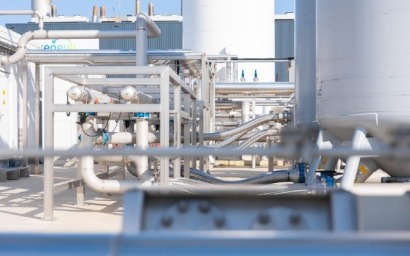
Vattenfall is the first Swedish energy company to have its target of net-zero emissions in 2040 verified by the Science Based Targets initiative (SBTi).
Green gas plays an important role in the transition to more sustainable energy. The production and use of green gas helps to achieve the climate goals in the field of CO2 reduction and helps the Netherlands to become less dependent on natural gas imports. One of the climate goals is to produce 2 billion m3 of green gas annually in the Netherlands by 2030. The Netherlands currently produces approximately 250 million m3 of green gas.
The green gas for Vattenfall is produced in a state-of-the-art Renewi Organics plant in Amsterdam. Organic waste streams are collected in this digester. These food scraps come from restaurants and canteens, expired products come from supermarkets, for example.
The green gas from the digester is added to the regular gas network, where it mixes with the natural gas and thus makes the gas mix a little greener. By 2030, 20% of the gas consumed by households and small businesses must be produced sustainably.
Cindy Kroon, Vattenfall's Customer Director for the Dutch market, said, "Green gas works just as well as natural gas, whether we use it for heating, showering, or cooking. By using more green gas, we make our lives at home a little more sustainable. In this way, we help society move forward and work towards freedom from fossil fuels."
Marc den Hartog, Director of Renewi Commercial Waste Netherlands, commented, “By converting waste streams into new, more sustainable raw materials, we are working towards a cleaner world. The collaboration with Vattenfall is a great example of getting as much value as possible from waste and making a substantial contribution to the circular economy. The supply of green gas contributes to achieving the climate objective; The Netherlands will be climate neutral by 2050."
Renewi is expected to start supplying green gas in the spring of 2024.

